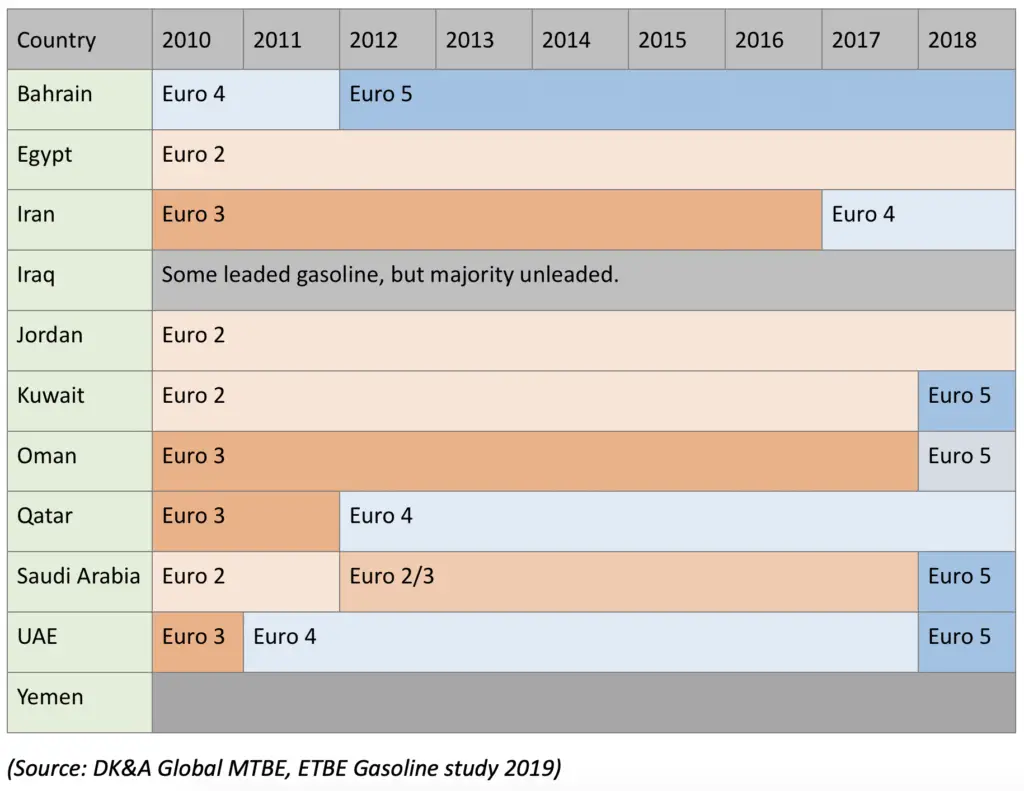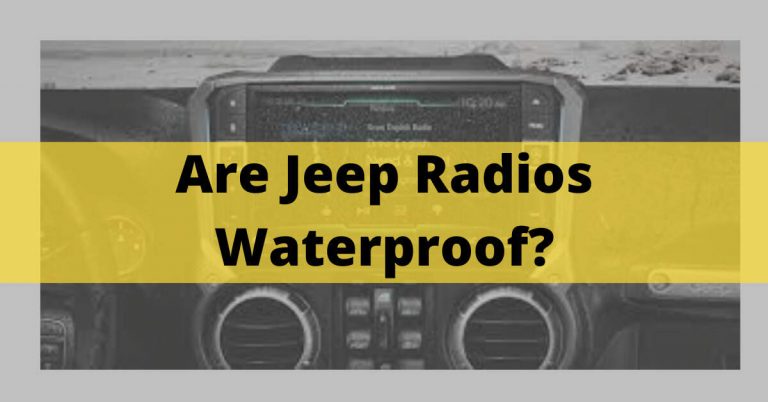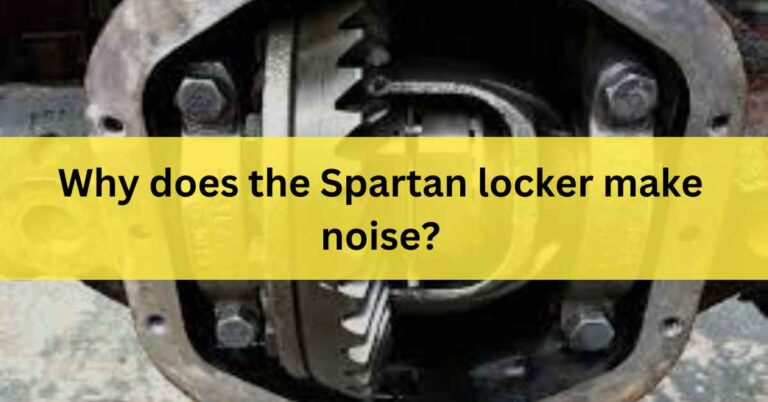Why does the Jeep Wrangler make a knocking noise when accelerating?
The most reliable vehicles can encounter issues over time, and one common concern reported by Jeep Wrangler owners is a knocking noise when accelerating. This mysterious sound can be unsettling and lead to questions about the vehicle’s health and safety.
The knocking noise can result from various issues, including engine detonation, worn engine bearings, spark knock, exhaust system problems, transmission issues, or worn suspension components.
A knocking noise, when accelerating, can manifest in various forms, such as a rhythmic thud, a metallic clang, or a repetitive tap.
While the sound can originate from different parts of the vehicle, it’s essential to pinpoint its exact source to address the issue effectively.
In this article, we delve into the potential causes behind the knocking noise in a Jeep Wrangler when accelerating, offering insights into diagnosis, prevention, and resolution.
Common Causes of Knocking Noise When Accelerating:
1. Engine Detonation or Pre-Ignition:
One of the most common causes of knocking noise during acceleration is engine detonation or pre-ignition.
It occurs when the air-fuel mixture in the engine’s cylinders ignites prematurely, causing a knocking sound.
Factors like low-quality fuel, incorrect ignition timing, or excessive carbon buildup in the combustion chamber can contribute to this issue.
2. Worn Engine Bearings:
Worn or damaged engine bearings supporting the rotating engine components can lead to knocking sounds.
When bearings deteriorate, they may produce a rhythmic knocking noise that increases with engine speed.
3. Fuel Quality and Octane Rating:
Using fuel with an insufficient octane rating for your Jeep Wrangler’s engine can result in knocking.

Engines with higher compression ratios require fuel with higher octane levels to prevent premature ignition.
4. Spark Knock:
A spark knock, pinging, or detonation can occur when the air-fuel mixture ignites unevenly within the cylinders.
It can result from a malfunctioning knock sensor, carbon deposits, or incorrect spark plug gaps.
5. Exhaust System Issues:
Damaged or loose components in the exhaust system, such as a failing catalytic converter or a flexible heat shield, can produce knocking noises as exhaust gases flow through.
6. Transmission Problems:
Issues within the transmission, such as worn-out gears or a malfunctioning torque converter, can generate knocking sounds when accelerating.
Diagnosis and Resolution:
1. Consult a Professional Mechanic:
If you experience a knocking noise when accelerating in your Jeep Wrangler, it’s advisable to consult a qualified mechanic.

A professional assessment is crucial to identify the noise source and determine the appropriate action accurately.
2. Regular Maintenance:
Regular maintenance, including spark plug replacements, oil changes, and fuel system cleanings, can help prevent issues that contribute to knocking noises.
Adhering to the manufacturer’s recommended service intervals is essential.
3. Use High-Quality Fuel:
Ensure you’re using fuel with the recommended octane rating for your Jeep Wrangler’s engine. Using a higher octane fuel than required is generally harmless while using lower octane fuel can lead to knocking.
4. Address Ignition Timing:
Incorrect ignition timing can cause knocking. Consult a mechanic to adjust your Jeep Wrangler’s ignition timing properly.
5. Check Engine Oil:
Maintain the proper oil level and quality. Low-quality or old engine oil can contribute to engine knocking.

6. Exhaust System Inspection:
Regularly inspect the exhaust system for damage, leaks, or loose components. Timely repairs can prevent knocking noises from originating from the exhaust system.
7. Transmission Check:
If transmission-related issues accompany the knocking noise, have the transmission inspected by a professional mechanic?
Here are some symptoms to watch out for:
- Audible Knocking Sound: The most obvious symptom is a knocking or tapping noise heard from the engine compartment or underneath the vehicle when accelerating. This sound is often described as metallic and repetitive.
- Increased Noise Under Load: The knocking noise becomes more pronounced when you press the accelerator pedal, and the engine is under load, such as during acceleration or climbing uphill.
- Vibration or Jerking Sensation: You might feel vibrations or jerking sensations along with the knocking noise, primarily if the issue is related to the engine or transmission components.
- Reduced Performance: If the knocking noise is accompanied by a decrease in engine power or responsiveness, it could indicate an issue affecting the engine’s efficiency or combustion process.
- Illuminated Check Engine Light: A persistent knocking noise may sometimes trigger the vehicle’s onboard diagnostics system, causing the check engine light to illuminate on the dashboard.
- Hesitation or Poor Acceleration: If you notice hesitation or a delay in acceleration, along with the knocking noise, it could suggest problems with fuel delivery, ignition timing, or engine performance.
- Burning Smell of Smoke: In extreme cases, engine knocking combined with a burning smell of smoke from the engine compartment could indicate severe issues that require immediate attention.
- Change in Exhaust Note: A knocking noise might alter the exhaust sound of your Wrangler, indicating potential problems within the exhaust system.
- Worsening Over Time: If the knocking noise started subtly and has been getting louder or more frequent over time, it indicates that an issue is developing and needs addressing.
- Noisy in Specific Conditions: The knocking noise might only occur under certain conditions, such as during cold starts, heavy acceleration, or specific RPM ranges.
Frequently Asked Questions:
1. Should I continue driving my Jeep if I hear knocking noises?
It’s best to avoid driving your Jeep if you notice knocking noises, especially under acceleration. Driving might exacerbate the problem and lead to more severe damage.
2. Can I ignore the knocking noise if my Jeep’s performance seems unaffected?
Ignoring the noise can lead to further damage, even if performance seems unaffected. Addressing the issue early can prevent more expensive repairs down the line.
3. Is a knocking noise always related to the engine?
Not necessarily. While engine-related issues are common causes of knocking noises, problems in the transmission, exhaust system, suspension, or other components can also generate such sounds.
4. What should I do if the check engine light comes on with the knocking noise?
If the check engine light illuminates alongside the knocking noise, it indicates that the vehicle’s onboard diagnostics system has detected a problem. Consult a mechanic to retrieve diagnostic trouble codes and address the issue.
5. Can I continue off-roading with a knocking noise?
It’s not advisable to engage in off-roading if your Jeep has a knocking noise, as rugged terrain can worsen the problem. Prioritize diagnosis and repair before venturing off-road.
Conclusion:
Experiencing a knocking noise when accelerating in your Jeep Wrangler can cause concern, but it’s important not to panic.
While the sound can be unsettling, it’s often indicative of specific issues that can be diagnosed and resolved with the assistance of a qualified mechanic.
Regular maintenance, adherence to service recommendations, and proper fuel usage can go a long way in preventing knocking noises from occurring.
By addressing the root causes promptly, you can continue to enjoy the adventure and reliability that the Jeep Wrangler is known for while ensuring a smooth and noise-free driving experience.





![Jeep Wrangler passenger seat will not recline [How to solve]](https://garagegrabber.com/wp-content/uploads/2023/08/Jeep-Wrangler-passenger-seat-will-not-recline-768x402.jpg)
